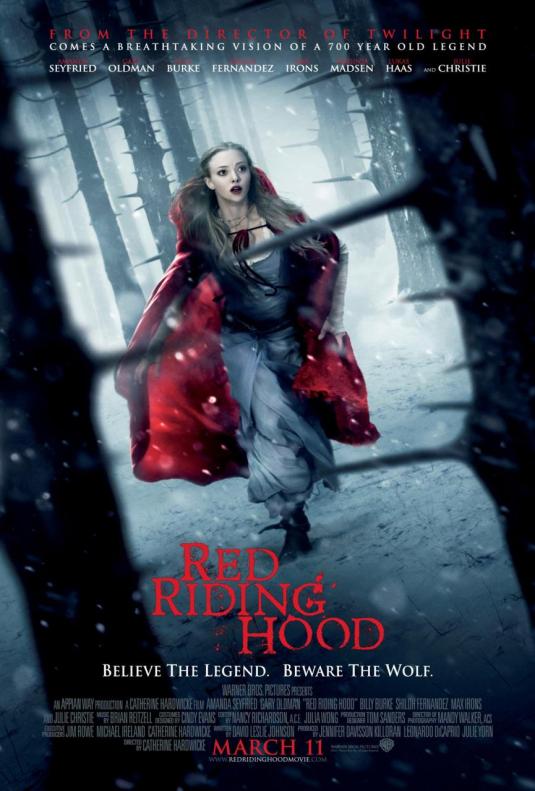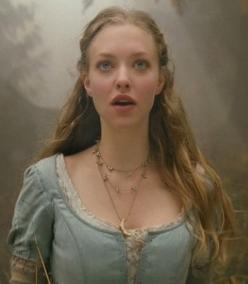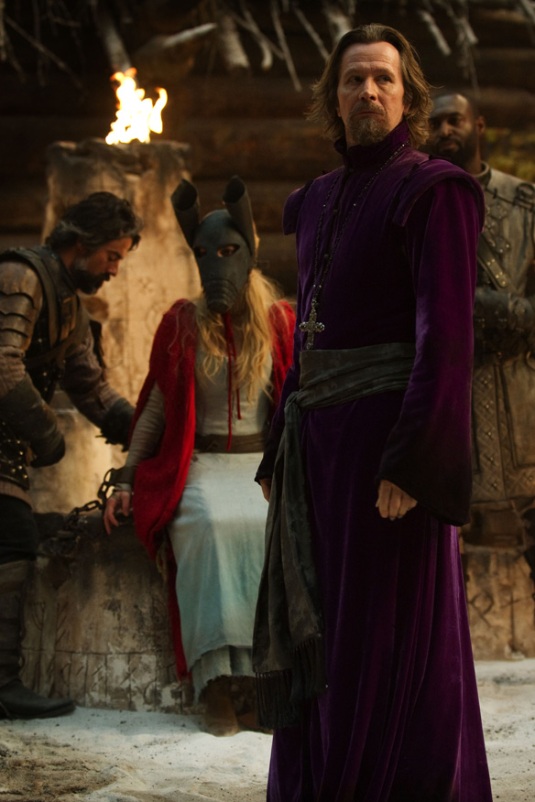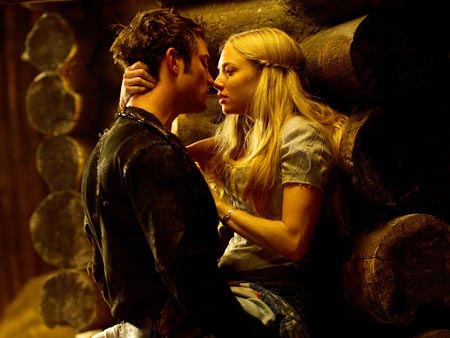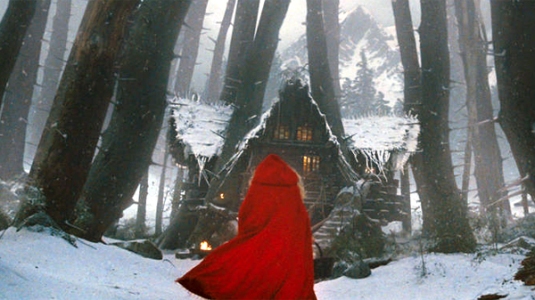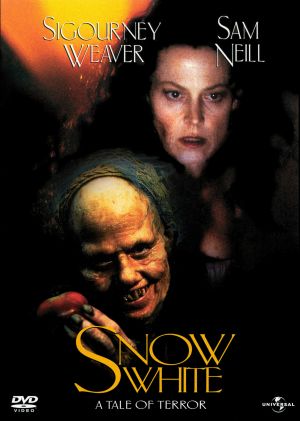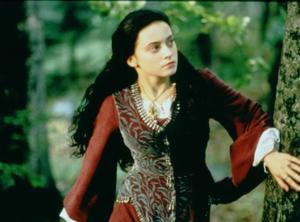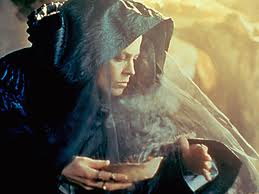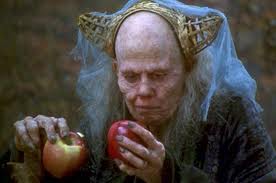Apologies, fae awareness troops, for not getting the drawings started earlier, but we had one last treat in store. Carole Lanham has kindly allowed us to reprint her marvelous fairy story, Keepity Keep, here at the blog. It’s one of my (Katey!) all time favorite fairy stories, much like the one we ran last month, so I hope you all love it like I do.
Keepity Keep
by Carole Lanham
It all begins and ends with a leather book, twenty-five significant pages asmudge with jelly thumbprints, pasted valentines, and knee blood. Childhood, if you will, saved on wrinkled paper. You know the stuff: the feathers you collected, the cigar ring the neighbor kid slid on your finger behind the snowball bush, that snotty smear that was once a frog’s heart… KEEPSAKES. That’s what the front of the leather book says, written in curly gold letters more flowery than flowers. Real gold letters, probably, and worth a small fortune each. Be it a shoebox, a hope chest, or a dresser drawer, one should always have a place to keep what must be kept.
The Turnbull brothers had a leather book.
Sure, a blue birthday candle had been taped in there, but the book held secret keepsakes too, ones even the brothers didn’t know about. The apple juice, for instance, that ran off the oldest one’s chin when he was pasting a dragonfly wing on Page Three. He didn’t see it, didn’t mean for it to splat there next to that little green wing. It got kept the same as everything else and much later, when the splat turned yellow-brown, everyone speculated about what it was. Why was it there? Who, they wondered, would keep a stain next to something as marvelous as a dragonfly wing?
Gage was his name, the one who was so sloppy with his apple eating, but Alban, the younger boy, dribbled things, too. A sneeze once, though we’ll not delve deeper into the particulars of that. Two drops of paint the color of sulfur. Spit from a kiss. And a full spring shower’s worth of raindrops, courtesy of the night he left the book on the windowsill. The point being: some things we save on purpose. Others aren’t kept by choice. Either can leave a splotch.
The story of Alban and Gage is about the importance of caring for our keepsakes, both the pearls of youth we choose to save on purpose, and the sneezes that sneak along for the ride. Page One begins in the garden, the day they first met Petaloo.
The Turnbull brothers, like most all brothers, were inclined to make things up. You might think they made up Petaloo, as well. That’s fair. Heaven knows, there were a lot of games that belonged solely to them. Nose Pins was theirs. Mipply Pipply and Bite the Hook, but they’re not recommended. Likewise, numerous inventions crowded their nursery walls. The lint-fetcher was a fine one. The shirt-buttoner was not. In any case, both boys were pretenders (fibbers?) and clever (sneaky!) enough to make up just about anything.
On the day they caught Petaloo having her bath in a leaf, Uncle Geoff dropped off the leather book as sort of a Sorry-I’ve-Been-Ignoring-You-While-I’m-Off-Seeing-The World gift. The book was new back then. No stains. No smudges. Just page upon page of clean, ice cream colored paper waiting for something to keep. Then came the leaf.
There aren’t many lads with the fortitude to look away from a girl in her tub, so let’s not blame them for that. Like the missing tip of Gage Turnbull’s second to last finger, seeing her was a sloppy accident. At nine, Gage was clumsy and a little bit round, still waiting to fit his height to his weight. Alban, a year younger, was trim as a willow whip and a great deal more graceful. He ran with the book into Daisy Chain Garden simply because Gage wanted so badly to see it. They hopped over Nipple Rock without incident and tore the heads off an entire patch of pinks, one boy chasing after the other, calling him dirty names. It was the roots of the hornbeam that ended things. Down went roly-poly Gage, bringing Alban along like a tapped domino. Off flew the book. It landed in the cuckoo flowers and a startled “Smeck!” escaped Gage’s lips when he peeled back a bloom and saw Petaloo.
Smeck is another Turnbull invention and not the sort that picks lint out of your bellybutton. Smeck, in all likelihood, is the most satisfying curse the world has ever known. For one thing, a boy can get by saying it almost anywhere at any time on any occasion because, until now, there has only ever been two people alive who know just how evil a word it is. For another thing, it is highly flexible in that you can combine it with other curses to make it even worse, like bloody smeck or smecking hell. Alban once told their cranky neighbor, Mr. Dangerbottom, to “go straight to smeck” and he didn’t even get a lash for it. Smeck was the handiest thing the boys had ever dreamed up. It was also the first human word ever spoken directly to Petaloo. “Would you look at that!” were the next to follow.
There, in the crook of a feltwort leaf, splashing under a drop of dew, was the teeniest girl they’d ever seen. Her hair was longer than she was tall and the same green as the feltwort. Her eyes were two pinpoints of sunlight with a violet smeck in the middle.
I mean, speck.
Of course, she had wings. This was why there was such confusion over what sort of bug she might be. Alban thought a cross between a firefly and a Mayfly. Gage claimed her for a freak beetle. It wasn’t until she stood up that they understood she was a miniature girl in every little way. “Holy smeck!” said they.
“I want her,” Gage declared right off. “I found her first. That makes her mine.”
“You can’t keep a girl,” Alban said, as he dabbed at the blood running down his scraped shin. “What would you do with her anyway?”
“Put her in a jar and stare at her.”
“If that’s as creative as you can be, you don’t deserve her at all.”
“I could make a saddle for Alistair so she can ride him like a horse.” Alistair was their three-legged titmouse.
“Alistair would tip over.”
Gage scratched his head. “I know! I could let her swim naked in a soda cap on my dresser.”
“Now you’re thinking,” Alban said. Their plans took on delicious life then. “Make her dance on my hand,” someone suggested. “Examine her thoroughly for the sake of science…”
“Science?” a little voice said. “I don’t like the sound of that.”
In perfect synchronicity, Alban and Gage looked at one another and plumbed their ears with their fingers, certain they’d not heard what they’d heard.
“Did she just speak?”
“I think so, yes.”
“Maybe it was a bee?”
“No,” the voice said, a little bigger this time. “It was ME.”
Alban looked closer. “What the devil?” he said. “Are you a bad omen?”
“I don’t think so. I’m Petaloo.”
“What’s a Petaloo?” Alban asked.
She giggled at this. “Don’t you know a Wingwee when you see one?” Goodness, what squeaky little snorts she made! “Hand me my Dress Upon from the stem there, will you? And tell me this, if you will; what in the fantong is a smeck?”
They blushed to hear a girl say such a coarse thing. “Don’t,” they cried, covering their mouths. “Oh! This is bad.”
“Well?”
Alban looked at Gage and Gage scratched his head.
“Never mind,” she said. “Just so we’re clear on this one thing, neither of you may keep me.”
“Then what can we do with you?” the boys asked.
“If, over time, you like me and I like you, we shall set out to become the best of friends.”
To mark this rather unexpected occasion, the boys declared that something must be found for their new book. “But what shall it be?” they wondered, as they poked around in snake holes and birds’ nests and mud in search of that right thing. Finally, it was decided. Along with a drip of blood and a drip of dew, they glued a Wingwee bathtub under the poem that appeared on Page One:
Skippily skip
A stone and a stick
A marble, a sunrise, a fly
Keep treasures close
That matter the most
And let all the rest skip by
****
Gage and Alban were the children of two modern-thinkers and, as such, they did what they wanted when they wanted. Their mother was a poet known by one name: Cicely. Even to them, she was Cicely. Their father was Henry Livingstone Turnbull. The Henry Livingstone Turnbull. Suffice to say, had their parents been normal parents, the boys should not have been allowed to read his work for another ten years. While Cicely and Henry paced the widow’s walk, smoking and looking to the treetops for inspiration, the two boys lost themselves in the garden without ever being missed.
This sort of freedom sounds magnificent if you’re a little boy, but, sooner or later, it will lead to broken bones or something much worse. In Daisy Chain Garden, there were a series of stepping stones shaped by God to look like daisies, hence the name. If Cicely and Henry’s parenting ideology were a daisy-shaped stepping stone, it would be the first in a series leading to disaster.
Petaloo, whose own parents had long since flown off to some other garden, took to meeting the boys each morning in the vesper flowers. The dark tunnels of their nostrils and their door-sized ears were as astonishing to her as her small acorn head was to them. She was exactly the same height as Gage Turnbull’s tip-less finger and just about as slender. Whenever she stood by this woe-be-gone stump of a digit, an amazing thing happened. Her hair was no longer feltwort green but rather a fingery hue. It went the same when she sat in a buttercup or hopped onto a freckled dapperling mushroom. Like a chameleon, her hair turned buttercup yellow or freckly brown, blending in quite decoratively. Puddles did wonders for her eyes.
As for the brothers, she was not about to let them wander about with any regular old hair either. Of Gage, she said his hair reminded her of the sable paintbrush a monk once dropped in the honey fungus while passing through the garden. “I use it to tickle my face,” she said. She flew on top of his head as she spoke, and tickled her nose with a bristle.
“And me?” Alban said. “What about my hair?”
Leaping onto the bent petal of a ragged robin, she thoughtfully considered Alban’s locks. “Well, you’re altogether different, aren’t you, Fidget?” She called Alban Fidget sometimes. “You’re not tickly at all. More like the pale wood of the spool I like to have my mint tea on.”
“A spool!” he spat, not thinking a homely spool to be nearly as good as sable.
“And you have lily pad eyes,” she was quick to add, for he was pulling such a face just then. “I long to leap just looking at them.”
“Leap?” he snarled. “Where?”
“Why, right onto your Shoe Upon so you can take me on adventures.”
This, you see, was what Petaloo did to Alban and Gage. She spun the hours away for them, making mountains of their mole hills and changing colors on a whim. The next keepsake they stuck in their book was a single braid of hair with three different ribbons of color: paintbrush, spool, and, bruool, a woody/ticklish chameleon-like combination that made for a shade all of its own. Petaloo so completely took over their days, nary a game of Mipply Pipply was remembered to be played.
****
But maybe you still have doubts as to the reality of such things? Think back. If you were lucky enough to grow up with a sibling, perhaps you can remember some small joy you shared with no one else but them? Something too crazy to be explained unless you had been there from the start. Maybe you had a Petaloo too, and you’ve simply forgotten after all these years? People do that, you know. The early beauty of a thing will be destroyed and squeezed to the back of a person’s mind, if things take a turn for the worse later on. That doesn’t make the Wingwees of childhood any less real. To the Turnbull brothers, Petaloo was real as rain.
Useful, too. A winged girl can be wonderful at pointing out where to dig for bones and other dead things. Six pages of rotten stuff came to be collected that first summer alone. Cicely forbid them to keep the book downstairs, that’s how good it was. Petaloo had spent thousands of birthdays in Daisy Chain, so she could make her way around blindfolded and not stumble over a single pea.
“Thousands?” Alban said when she first revealed this to them. “How old are you anyway?”
“Four thousand and three and today is my birthday.”
“But you look so young,” Gage said.
“Oh heavens, no. Tomorrow, I’ll be four thousand and four.”
At that precise moment, Gage was carving a wine cork to make a boat. They intended to put Petaloo in the thing at Beatbones Rapid and watch her shoot the current. He blew a piece of cork fluff off the tip of his whittler. “You mean you have a birthday every day?”
“How else is a girl to celebrate life?”
Alban crossed his arms, feeling instantly cheated. “We do it once a year.”
“Once a year? That’s not nearly enough.”
“We got bicycles last year. Do you get gifts on every birthday?”
“It wouldn’t be a birthday without them.”
“And cake?” Gage asked, scooping out a little seat.
“Are you mad?” she said. “Of course there’s cake!”
Alban was standing knee-deep in the stream. He was to be the launcher. “Who gives you these presents?”
“Hopefully you. Every day, I show up with a jewel or a cat leg or a treasure map, but have I ever gotten so much as a Happy Birthday from you?”
“We didn’t know,” Gage said, jiggling his pockets. Most of her gifts ended up in the leather book, but some were too queerly shaped. He kept these in his pockets. Pen nubs, walnuts, shoe buckles…He made quite a racket when he walked. His favorite was the peach stone that looked like a bright red heart. Alban had insisted it might be secured in the book as easy as an abalone button, but, of course, it bent the pages and prevented the book from closing. Gage had taken to sleeping with it under his pillow and touching it in the dark.
Why would he touch an old seed in the dark, you might ask?
It was just some dumb peach stone, or so that’s what Alban said after it refused to lie neatly in the book. But Alban had forgotten what Petaloo told them when she first rolled it onto his foot. “It’s a Clingstone.”
“What’s it for?”
“For clinging, silly.”
Sometimes, Gage was terrified that Petaloo would change gardens like her parents did. Touching the Clingstone made him feel better.
“I have five quid,” Alban announced on the day of Petaloo’s four thousand and third birthday. “What shall I buy you?”
Petaloo had never bought anything, though she’d read about it in the adverts that tumbled by from time to time. Alban explained about Hibbert’s Tools and Fine Sewing Goods and Petaloo decided it might be nice to have a Fine Sewing Good. All thoughts of launching her were dropped at this point. Alban sprinted off, promising something remarkable.
Gage wrapped his fingers around the peach stone, tracing the ridges with his fingernail. If Alban bought something from Hibbert’s, what sort of present might he give? Not the cork boat, surely. Petaloo had only agreed to the cork boat in order to shut them up.
After much consternation, Alban gave Petaloo a lace ribbon and Gage gave her a little chair. The ribbon cost half what Alban had in his mason jar and made Petaloo shriek like a jackdaw. Gage knotted together hedge mustard to make the chair, the first of a hundred pieces of furniture he would build for her. She sat in it all afternoon.
There was cake too. Alban whipped up some frosting and spread it on an orange jellybean. Petaloo had never had frosting before. Smacking her lips, she declared it her new favorite thing, never suspecting that something so sweet would one day spell doom.
****
After the boys made the decision to have birthdays every day too, they aged very quickly. They shouldn’t have been surprised to wake up with moustaches or find grey in their sable, their lives were zipping so. In fact, if birthdays were stepping stones, they would be the next stone in the path. Without really meaning to do it, Petaloo grew them up fast.
Instead of watching her bob past cattails on a cork, the Turnbulls became locked in a competition to decide who was the most generous. Their treasures changed, too. No longer did they care about the shoehorn waiting to be unearthed by the garden gate.
“Here is the leftover twine from the rocker I made for Petaloo,” Gage might say, placing twine in the book where otherwise a nice spore of witch’s butter might have been glued instead.
“And here is the receipt for the thimble I bought off the High-Priced Items shelf.” Alban would brag, covering up the twine. Page Ten is a puzzle of left-over handiwork and price tags slapped in place around this very poem:
Dimily dim
By plot or by whim
A memory will oft lose its way
When one makes you grin
Pray, store it within
And you’ll grin yet another day.
Sadly, the boys weren’t grinning much, and if you take a magnifying glass to Page Ten, you might be able to pick out the faintly purplish, lightly lemon-scented tear of a Wingwee left to dry on a receipt for a ruby button.
Sharing one finger-high girl between them was growing more and more difficult. If Petaloo should sometimes prefer Alban’s high jinks to Gage’s dark, quiet ways, favorite toys would be stomped to bits. A head might be held under water, even. Similarly, if Petaloo dared to admire Gage’s ability to turn bedstraw into a working chest of drawers, miniature dining room sets would be sent flying. Petaloo began to prefer when the boys visited alone. There was peace then… for the most part.
****
When Alban came without Gage, great fun was sure to be had. He would sit her on the soft pink cushion of his palm and run like the devil, her long hair streaming between his fingers. Once, he tied her on his kite and flew her up to the sky. Another time, he fastened her to his shoestring and leapt off Hollar Rock. In these carefree moments, when the trees all blurred and warm skin made for the happiest of chariots, Alban was not competitive or cross or cruel. He was just Alban, falling breathless on his back in the flowers with his beloved Petaloo tumbling to rest on his stomach.
“Someday I’m going to marry you,” he promised her on one such glorious day.
Settling her bottom on the circle of his shirt button, Petaloo asked, “Could we have a cake made out of frosting?” Not long before this, she had found a napkin with a picture of a wedding cake on it and had made it her parlor rug. Petaloo thought wedding cakes to be one of the finest of all human creations.
Alban raised up on his elbows and bright purple stamens bowed and parted around the shape of him. “Do you love me, then?”
“I couldn’t darn your socks, I shouldn’t think, nor hang your washed clothes up to dry on a line. For that matter, I couldn’t wash them to begin with.”
“Hm,” Alban said. “I shouldn’t like to do all that for myself. But what about love?”
“I don’t believe in saying that word.”
“Why not?”
“It’s too powerful for Wingwee lips. It’s too powerful for Boy lips, too.”
“I won’t always be a boy.”
“Yes, but I will always be a Wingwee.”
Alban had not considered this, as he was not normally given to consider anything overly much. “Come on,” he said, scooping her up. “Let’s jump off Crooked Bridge and scream until our lungs bleed.”
****
On other days, a jingling jangling sort of romance bloomed, or so that’s what it sounded like to Petaloo. With Gage, there was no screaming until you hurt yourself. No wayward kites. No proposals of marriage. On these more somber, clatter-pocket days, wood chips whizzed past Petaloo’s head while she sunned herself on a geode and Gage built swings and canopy beds. He was taller now and stringy of limb. His hair hung in black, pointy quills that hid his eyes and there was no need to nickname such a boy as this, for the name Gage suited his contemplative soul as fittingly as Fidget suited his brother. She was grateful he did not speak of love as Alban did, though she’d often watched him roll the Clingstone between his hands in a way that made her fidget.
His voice was deep and hoarse and sad. “I built a chair for my father today, but it looked an awful mess.”
“I don’t believe it,” Petaloo said. “Your creations would be beautiful in any size.”
“No. I’m used to thinking small now. Perhaps I could make furniture for doll houses some day?”
“It would be a grand day for dolls if you did.”
He shrugged. “I wouldn’t like it as much as I like making things for you.”
“I could go to having human birthdays, if that would free you up a little?”
The wood whittles stopped flying. “What an awful idea. We mustn’t change things in the least.”
This was her dream as well. On every first star every night, Petaloo wished to stop time. “Give me your hand,” she said. Every so often, she felt compelled to do a test and stand herself next to his second to last finger.
“You’re shrinking!” Gage cried.
Tears, smaller than seed pearls, tumbled from her eyes. “No, I’m not. You’re growing. It’s what you humans do best.”
He rubbed his finger against her head and, for a split second, it seemed like seed pearls might fall out of his eyes, too. Then he thrust her back on the rock and took up his work once again, but not before he gripped the Clingstone and gave it a hard squeeze.
****
After a thousand birthdays, a new game came to be played between the brothers. It was called Petaloo Who? To play it, a boy was required to summon enormous indifference, if not all-out amnesia. It became the height of immaturity to admit to paying a visit to the garden. Much better, one should pretend to need some selfheal for a scratchy throat, if he was caught prowling around there.
Alban was better at this than Gage. If the name of Petaloo came up, Alban possessed the ability to look phenomenally confused, yet he still took a secret tramp through the garden daily to leave a crystal bead or a ball of yarn. Because self-preservation was at stake, the game of Petaloo Who? was infinitely more dangerous than Nose Pins would ever be.
One crisp, leaf-whirling afternoon, Alban stumbled into the garden with red-haired Edna Heat. Yes, Heat. It says so on her Baptismal certificate. Heat came to the garden and violets were rolled upon and brambleberries were squashed flat. Petaloo saw it all and even felt a bright green burst of something cold and hot explode inside her toothpick bones. It hurt so much, she limped for days after, certain Death was near. Despite confessing to her ineptitude with giant darning needles, she had foolishly imagined she could keep the boys forever in a cozy world of three. When Gage came clanking along hours later, she soaked his knee with her sobs, though she didn’t tell him why. The poor boy was so distraught, he built her eight new sofas.
Blowing her nose on a pant’s wrinkle, she looked up at him and knew beyond all shadow of a doubt that someday Gage would leave her, too. She climbed on his shoulder and rubbed her cheek against his, wishing, as she always did, to stop the hands of time.
But human nature is human nature, even if Wingwees refuse to cater to it. Party invitations replace saved candy wrappers on Pages Sixteen, Seventeen, and Eighteen in the book. And remember the kiss spit? Alban no longer dreamed of having a tiny wife. Miss Heat never flattened the brambleberries again, but a long list of others did. Alban had the sort of face every girl falls in love with. It would take a more special soul to pursue Gage.
Once, after both boys had stopped by on the sly ― Gage before school and Alban after ― Petaloo was watching a peppered moth soar past the garden when a triangle of paper came cart-wheeling through the dog rose to knock her on her head. Often such rude clobberings were the work of a mindless paper sack or a tobacco tin run amuck, but this particular piece of rubbish was so fresh-white, it begged closer inspection. Unfolding the triangle took Petaloo all of time. Fortunately, each new layer revealed something to keep her interest up.
The first corner opened to the salutation: Good Morning, Young Mister Turnbull. The next contained parts of four different sentences. And the next, tidbits of seven. The second triangle, for instance, looked like this:
…such a relief to hear you love me too…
…ever since and I can’t seem to get you out of my mind.
…it is unseemly for a teacher to fall prey to…
…therefore I must ask for the strictest discretion.
In this way, the letter was read by Petaloo, the beginnings jigging and the endings jagging, until it reached its end.
Faithfully Yours,
P
By the time she got to ‘P’, Petaloo had the whole thing spread in the grass, but I suppose you get the picture. The triangle was a love letter dropped by one of the young Mister Turnbulls. But which one? Petaloo only knew that she was losing them faster than her heart could stand.
****
At the time of the triangle, Gage (in human years) was sixteen and Alban a year behind. Petaloo knew nothing of teachers and what was allowed or not allowed to pass between them, but she had learned that boys of a certain age forget how to share. She understood that the note was meant to be a secret so she carefully re-triangled the paper and put it under the old boot that Gage had given her for rainy days. Sooner or later, she was sure the owner would reveal himself and then she would return the note.
If a day should pass without a visit from Alban, she would say to herself, A-hah! I knew it! Woman or girl, Alban charms them all. For certain, he is Young Mister Turnbull! But then it would happen that Gage would be very late or very distracted, and she would think, A-hah! So this is why Gage never brings girls to the garden! Oh, it was highly frustrating, to say the least. Discovering the truth was like opening a triangle one corner at a time
Just when it seemed a proper hint might never come along, Petaloo discovered Alban picking through the goat willow anxiously looking for something.
A-hah!
“What are you doing?” Petaloo asked, making him jump when she flew up behind.
“I’m going to make a sling shot so I can shoot Neville Pipping after school tomorrow.”
A likely story, the Wingwee thought, but she graciously offered to help find a forked stick. “What is school like?” Petaloo asked. “Do you and Gage have the same teacher?”
“School is boring. We have Miss Wilton.”
Petaloo checked a nutlet for projectile potential. “Is she nice?”
“Fairly, but everyone likes our religion teacher best. We’re learning about heathens.”
“What’s her name, then?”
Holding up a rather promising Y, Alban extended his arm and pulled back on an imaginary strip of rubber. “Mr. Seaton,” he said. “But everyone calls him Peter.”
****
Somehow, Petaloo had come to be the guardian of a secret so heavy that, although it was made of paper, she couldn’t budge it from its hiding place no matter how hard she tried. She wondered why humans liked to keep such bulky things. By her experience, they took up far too much room, leaving you to get soaked in the rain.
When asked about Mr. Seaton, Gage agreed that he was the favorite one. And Miss Wilton’s first name? Nobody knew. “Peter is more like a friend than a teacher,” Gage said of Mr. Seaton.
The next day, Petaloo was startled when two sets of feet nearly trampled her flat. She had not heard them coming yet there they were, Gage’s gigantic hobnail boots, alongside a scuffed pair of spectators. A man laughed and before you could say MIND YOUR STEP, a berry bucket came crashing down, caging her in darkness. Muffled talking and laughing followed.
Nothing makes one feel smaller than being trapped under a berry bucket at a moment such as this. You can imagine then how well Petaloo took it when Gage at last lifted the lid and, dumb as you please, said, “How did you get under there?”
“As if you don’t know!”
“I must have kicked it without realizing,” he said. Kicked it without realizing! She stormed off into the catmint and hid there until after he went home.
That night, she noticed Gage had left the leather book behind with a new footstool sitting on top of it. I’m Sorry, Petaloo, he’d written on a scrap pale blue paper. I brought the book so we could look at it, but I couldn’t find you anywhere. Perhaps tomorrow?
Petaloo tried out the new footstool. It was the nicest one yet. She thought of the forlorn sound his pockets made when he’d given up and left. For a girl used to having her baths in a leaf, privacy was hard to understand. Much as it hurt her to think of it, Gage was old enough to deserve his privacy. Any day now, he would empty his pockets and move on. Petaloo wasn’t sure she could bear to see the peach pit heart discarded in the weeds.
All night she lay awake, praying for young children to take the place of her two grown boys. The wishing star came and went in the sky. After serious thought, Petaloo arrived at a decision. Tomorrow would be her last birthday in Daisy Chain Garden. The time had come to move on. She worked a long time to open the book, and, with a sniff, placed Gage’s note between the pages for him.
****
Now then, it seems we’ve come to the frosting part of the story. As hinted at all those words ago when bird skeletons were still the height of good fun, this next part you’ll not like to hear. Even so, all books need an ending and the leather one is filled up now ― all but one final page.
Let’s turn to it.
Gage arrived the next morning, bearing a special present. “It’s real wedding cake,” he told her. “Can you find it in your heart to forgive me?”
“I’ve already forgiven you.”
“And the book?” he said. “Can we read the book?”
She smiled, thinking how relieved he’d be to get his love note back. He carried her down to Beatbones Rapid to eat cake and flip through the book with her. “Here it is,” Gage said. “The best page of all.” He opened to that old tub.
It was shriveled now but, thanks to the blood, you could still see its faint shape. “Remember the first time we saw you? I thought you were a beetle.”
“I’ll never forget it, book or no.”
“Me either.”
“What’s this?” he said, tapping his finger on a yellow-brown stain beside a shiny wing. “Who saved this?”
Petaloo felt so content, she only saw the wing. “Can we have some cake now, Gage?”
Get ready, because here it comes…
“Yes.”
Quiet as that, Alban appeared, and what do you think he saw? Petaloo licking a fluffy swirl of white frosting off his brother’s tip-less finger. “My favorite,” said the girl, licking Gage’s crooked finger until it was clean.
“Alban?” Gage said, looking up from her tongue. “Why are you wearing my boots?”
Alban squinted at them both. “I always wear yours in the garden. I don’t like to get mine dirty.”
Gage squinted too. “But they’re my boots.”
“At least I’m not sneaky like you, meeting by the rapids with wedding cake.”
“You don’t like to play in the garden anymore, remember?”
But Petaloo, for the first time, understood that this was not entirely true.
“You’re a rat!” Alban sneered. Gage put down Petaloo with the book and jumped to his feet. As a fight broke out between the two, Petaloo, quick as her size would allow, began flipping the keepsake-heavy pages in search of the note. It was Fidget’s triangle, she realized now. It was not for Gage to see.
“Let go,” Gage said as Alban’s hands plunged into his brother’s pockets and began to tear through them.
“This junk belongs to me, too.” Hateful words were shouted then, and fists were heard crunching jaws. Something red flew through the air. Blood, you might guess, but no.
While the Clingstone catapulted overhead, Petaloo turned to the note resting atop this last poem:
Sweepity Sweep
All that is cheap
For the years are quick to depart.
Keepity Keep.
The things that run deep
Save your best treasures inside your heart.
Then…shhhplunk.
Gage heard the seed hit the water and Alban spotted the note. With that, the hand of time, caught in its spiteful cog. Nothing breathed. Nothing bled. Nothing sunk.
Alas, time will have its own stubborn way in the end and it kicked and pushed until it got things rolling again. To compensate for the mix-up, it moved faster than ever. Gage jumped toward the current, set on rescuing that old pit. Alban, just a step behind, thought Gage was going for the note, and jumped toward the book. Petaloo thought Gage wanted the letter too, and leapt up on the page to push the note into the stream. You might think her incapable of handling something so big with any amount of real speed.
Sometimes, the littlest thing will surprise you.
She scooted the triangle across the page as both boys drew closer. Alban’s shadow reached her the same second she sent the note into the water. But his hand was already in motion, striving to hide something that was no longer inside the book ― his actions too swift to take into account what was. In other words, he didn’t see the Wingwee. He only saw his secret. And Gage, in turn, saw only that old stone.
In the tick of that epochal second, the Clingstone was snatched up, the note bobbed off in the current, and a wall of paper rose toward Petaloo, the words on the page growing larger and larger, before darkness came…
Keepity Keepity Keep.
Keepity Keep is part of the short story collection The Whisper Jar (Morrigan Books Oct 2011), available for sale through Amazon and featured as one of the prizes in the Fae Awareness Month Giveaway: https://faeawarenessmonth.wordpress.com/2012/06/07/giveaway/. The drawing begins today!
